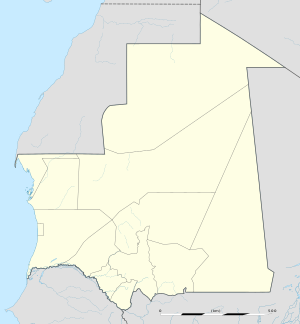The original inhabitants of Mauritania were the Bafour, presumably a Mande ethnic group, connected to the contemporary Arabized minor social group of Imraguen ("fishermen") on the Atlantic coast.

Mauritania is a presidential democracy, but has suffered from repeated military coups since its Independence in November 1960. For 18 years after independence, Mauritania was a one-party state under Moktar Ould Daddah. This was followed by decades of military rule. The first fully democratic presidential election in Mauritania occurred on 11 March 2007, which marked a transfer from military to civilian rule following the military coup in 2005. The election was won by Sidi Ould Cheikh Abdallahi, who was ousted by another military coup in 2008 and replaced by general Mohamed Ould Abdel Aziz. Mauretania underwent its first peaceful transition of power after the 2019 presidential election, although this was between two presidents of the ruling UPR party and former army generals.

The economy of Mauritania is still largely based on agriculture, slave labour and livestock, even though most of the nomads and many subsistence farmers were forced into the cities by recurring droughts in the 1970s and 1980s.

Nouakchott is the capital and largest city of Mauritania. Located in the southwestern part of the country, it is one of the largest cities in the Sahara. The city also serves as the administrative and economic center of Mauritania.

Mauritania is divided into 15 regions :

Elections in Mauritania encompass four different types: presidential elections, parliamentary elections, regional elections and local elections.

The Mauritania national football team, nicknamed Al-Murabitun in the reference to Almoravid dynasty, represents Mauritania in men's international football. It is controlled by the Féderation de Football de la République Islamique de Mauritanie, and is a member of the Confederation of African Football. They have not qualified for the FIFA World Cup. However, in the Amílcar Cabral Cup, a regional tournament for West Africa, Mauritania came fourth in 1980 on hosting the competition. The national football team of Mauritania later runners-up in 1995, losing on penalties to Sierra Leone after the final finished 0–0.

The Football Federation of the Islamic Republic of Mauritania is the governing body of football in Mauritania. It was founded in 1961, affiliated to FIFA in 1970 and to CAF in 1976. It organizes the national football league and the national team.

Slavery has been called "deeply rooted" in the structure of the northwest African country of Mauritania and estimated to be "closely tied" to the ethnic composition of the country, although it has also been estimated that "Widespread slavery was traditional among ethnic groups of the largely nonpastoralist south, where it had no racial origins or overtones; masters and slaves alike were black", despite the cessation of slavery across other African countries and an official ban on the practice since 1905.

Christianity is a small minority religion in Mauritania.

Mauritania – United States relations are bilateral relations between Mauritania and the United States.

Issues impacting Women in Mauritanian society include female genital mutilation, child marriage, and polygamy.

Mauritania, formally the Islamic Republic of Mauritania, is a sovereign country in Northwest Africa. It is bordered by the Atlantic Ocean to the west, Western Sahara to the north and northwest, Algeria to the northeast, Mali to the east and southeast, and Senegal to the southwest. By land area Mauritania is the 11th-largest country in Africa and 28th-largest in the world; 90% of its territory is in the Sahara. Most of its population of some 4.3 million lives in the temperate south of the country, with roughly a third concentrated in the capital and largest city, Nouakchott, on the Atlantic coast.

Mauritania Airlines, previously Mauritania Airlines International, is an airline based in Nouakchott, Mauritania, serving as flag carrier of the country. The company was set up in December 2010 in response to the demise of Mauritania Airways. In April 2018, the airline rebranded from Mauritania Airlines International to Mauritania Airlines. It is the only airline currently flying domestically within Mauritania.

Most visitors to Mauritania may obtain an electronic visa to Mauritania, unless they are a national of one of the visa-exempt countries.

The cuisine of Mauritania includes the culinary practices of Mauritania. Historically, what is now Mauritania has been influenced by Arab, Berbers and African peoples who have lived in and traversed the "stark" landscape marked with Sahara desert dunes in caravans. There is an overlap with Moroccan cuisine in the north and Senegalese cuisine in the south.
The Military ranks of Mauritania are the military insignia used by the Armed Forces of Mauritania. Being a former colony of France, Mauritania shares a rank structure similar to that of France.

Mohamed Ould Cheikh Mohamed Ahmed Ould Ghazouani, also known as Ghazouani and Ould Ghazouani, is a Mauritanian politician and retired army general who has served as the 9th President of Mauritania since 2019, and the chairperson of the African Union since February 2024.












